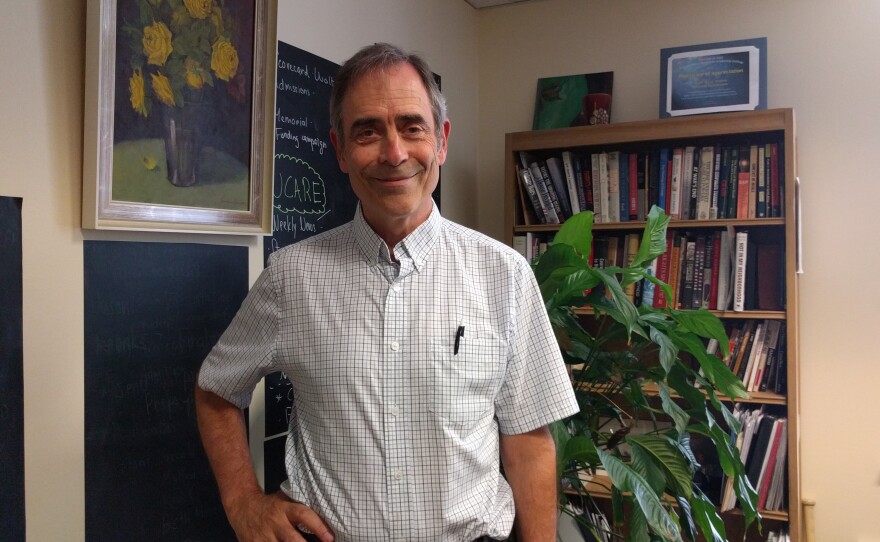Frank Dukes, a fellow at the Institute for Environmental Negotiation at UVa, is one of two presenters at an event today at JMU called "Why Confederate Monuments Matter: Charlottesville and Beyond." WMRA's Marguerite Gallorini has this report.
Frank Dukes is an expert on the issues of monuments and memorials. He’s been involved in a number of projects and commissions in Charlottesville.
FRANK DUKES: We have a project here called "Transforming Community Spaces" which is intended to help institutions and communities that see they have these problematic spaces and they need to figure out ways to address them, how they can tell more complete histories.
Today’s [Tuesday, Sept. 26] talk at JMU will focus on how Confederate monuments help reinforce different narratives of white supremacy, and lessons that we can learn from Charlottesville – and that can be applied everywhere, not just in the U.S. What does he hope will come out of today’s conversation?
DUKES: I hope people will recognize that many of our community spaces tell histories that are in fact incomplete, and often outright falsehoods. Once we understand that, we're better able to understand why our communities look the way that they do, why we have so much racial segregation, why we have so many really pernicious and harmful racial disparities.
And what about the argument that removing one statue is a slippery slope to getting rid of many more?
DUKES: I hope there will be a question like that because I can give three answers: one is, I don't think there is any statue limitations on truth and honesty in history, so we're always learning new elements of that. A second one is that if you look at Monticello and Montpelier, with Jefferson and James Madison, and Highland locally with Hames Monroe: they're all telling different stories than they did just a couple of decades ago but nobody's talking about tearing down Monticello or tearing down Montpelier or tearing down Highland. And I think a third thing is we're not celebrating Jefferson because he enslaved people. We're celebrating him for things like the Virginia Statute of Religious Freedom, or the Declaration of Independence. That's different than monuments that actually celebrate people whose renown comes from their work to continue slavery or whatever problematic other elements there are.


